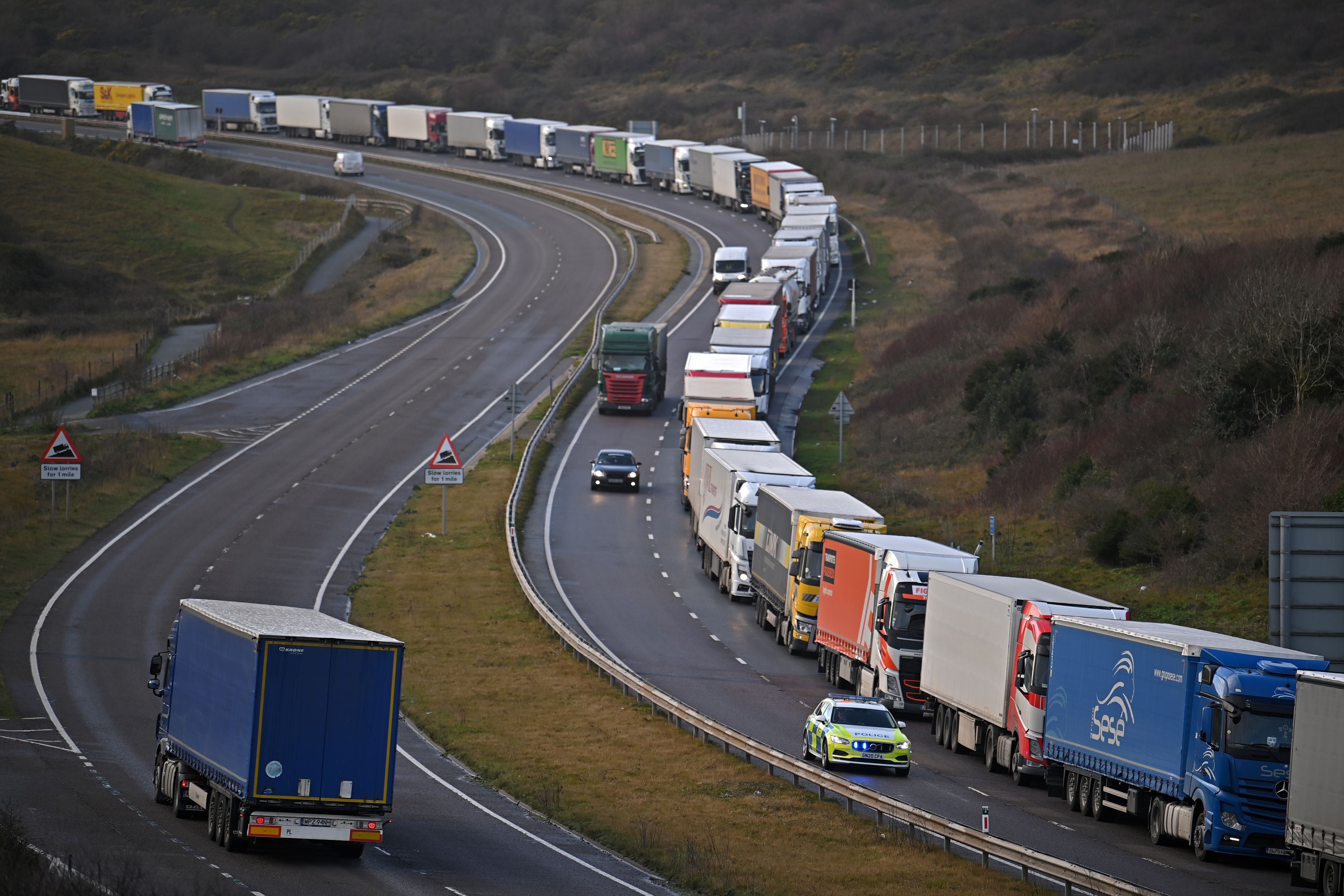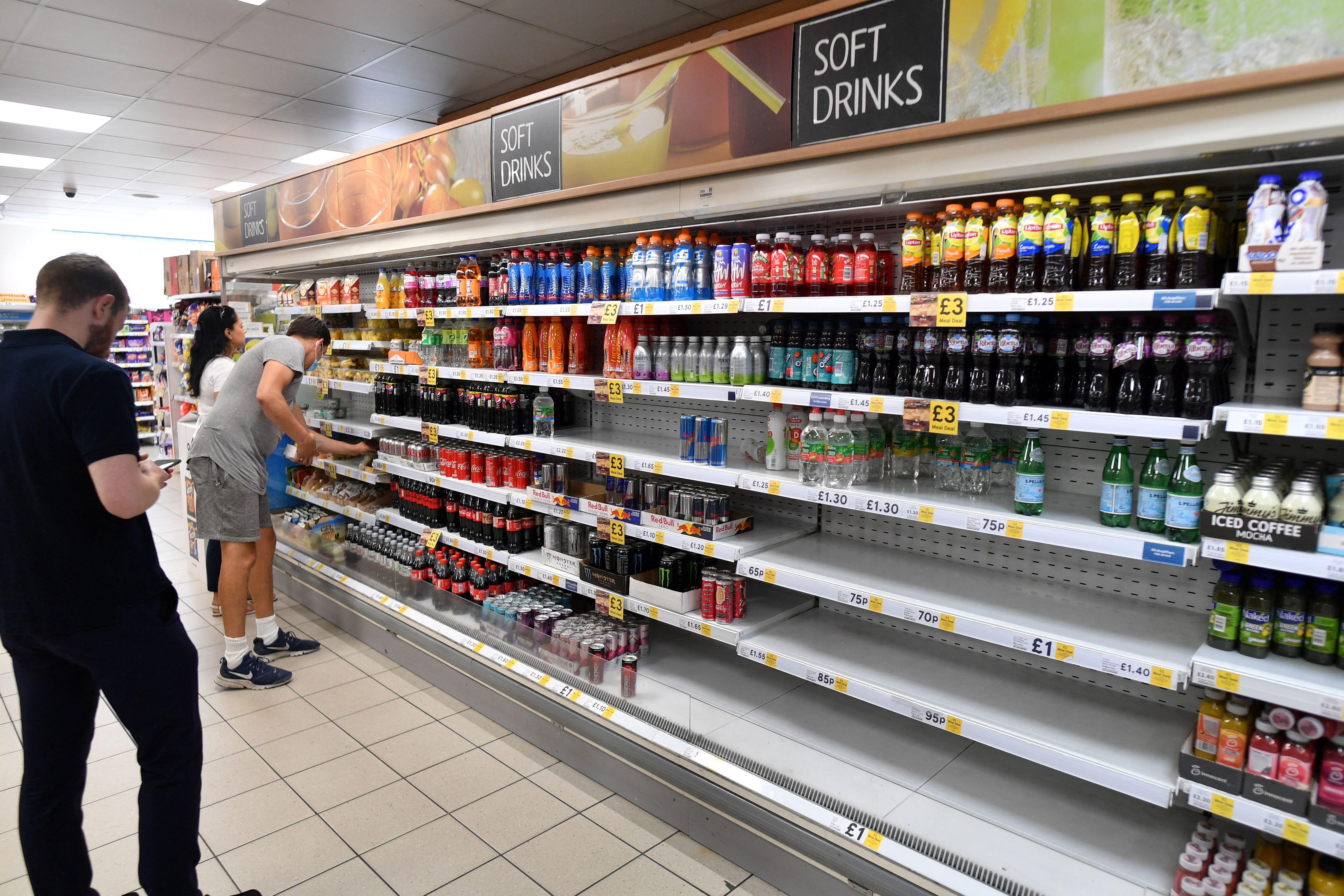Brexit checks on food imports pushed back until 2024 in fifth delay
New controls will bring ‘considerable benefits’ to trade, says Tory minister – as latest red tape wave pushed back until January 2024

Your support helps us to tell the story
This election is still a dead heat, according to most polls. In a fight with such wafer-thin margins, we need reporters on the ground talking to the people Trump and Harris are courting. Your support allows us to keep sending journalists to the story.
The Independent is trusted by 27 million Americans from across the entire political spectrum every month. Unlike many other quality news outlets, we choose not to lock you out of our reporting and analysis with paywalls. But quality journalism must still be paid for.
Help us keep bring these critical stories to light. Your support makes all the difference.
New post-Brexit border checks on food, animal and plant products imported from the EU have been delayed for a fifth time, Rishi Sunak’s government has finally confirmed.
The additional red tape had been due to be phased in from October, but will now be pushed back until 2024 amid fears that the cost burden will add to inflation.
Ministers were accused of “absolutely shambolic” handling of the rollout after the decision to delay the new “border operating model” was reported back at the beginning of August.
The government ended the uncertainty for businesses on Tuesday – announcing a three-month delay to the health certificates required for imports, which will now brought in from 31 January.
There will be a further three months before sanitary and phytosanitary (SPS) checks on medium-risk food, animal and plant products come into force on 30 April.
Cabinet Office minister Baroness Neville-Rolfe said the new system would mean “more efficient trading for businesses” and “bring considerable benefits to the UK economy and to UK trade”.
Labour wrote to business secretary Kemi Badenoch last week demanding that she explain the government’s plans amid uncertainty over the summer – accusing her of “absolutely shambolic” and “chaotic” handling of the issue.
But business groups – critical of preparedness for the latest wave of post-Brexit bureaucracy – have largely welcomed the decision to delay, saying it would help avoid “major disruption” at the border and in supermarkets.
William Bain, head of trade at the British Chambers of Commerce, said: “Businesses will be pleased with this clarity as they prepare for the challenging shift to a digital trade system.”
Mr Bain urged the government to help firms and port officials get ready for January. Businesses “need to be confident that the physical and digital infrastructure around the GB border is going to be in place on time,” he said.

Nigel Jenney, chief executive of the Fresh Produce Consortium, said fruit and vegetable importers also welcomed the move adding that the government had “acted upon our concerns”. However, he said “challenges remain” with the implementation.
Andrew Opie of the British Retail Consortium (BRC), the umbrella body for supermarkets, said most retailers also “welcome” the delay – but warned that the government had to reassure EU exporters that the checks would be enforced in 2024 after successive delays.
Mr Opie, director for food and sustainability at the BRC, also called on Mr Sunak’s ministers to simplify the checks to cut costs to British firms.
“Our members welcome the delay given the added costs to the supply chain and the level of friction anticipated,” he said. “However, we need to ensure that EU exporters, who have already seen multiple postponements of checks, will thoroughly prepare for January and April checks in the belief that controls will be implemented.”
The retail chief added: “We also hope that when these checks are introduced, the government will move away from the current proposals to ones that are simplified and recognise existing controls in the supply chain to reduce cost and bureaucracy.”

A spokesperson for the Food and Drink Federation said the delay was “unfortunate but necessary”, as the body urged the government to “use this time to deliver progress where it can help to simplify and cut the cost of international trade”.
Nick Allen, chief executive at the British Meat Processors Association, said it was still not clear exactly which goods would go into different risk categories for levels of inspection, or how efficient new digital systems for paperwork would be.
“Smaller British companies really struggle with this – it is those firms who could walk away from importing if it’s all too bureaucratic,” he told The Independent. “I dare say the system wouldn’t be as good as it should be – but hopefully it will get better in time.”
Nick Thomas-Symonds, Labour’s shadow international trade secretary, said the delay only confirmed “the chaotic mess the Conservative government has created” – arguing that leaving major changes until so close to the implementation deadline was “unacceptable”.

Before Britain left the EU, its membership of the EU single market and customs union meant suppliers could bring food into the country from Europe without any paperwork.
The government has said its “risk-based” approach to the introduction of import checks means the impact on food inflation will be negligible. Officials expect the impact on headline inflation to be less than 0.2 per cent across three years.
EU imports deemed low risk, like most fruit and vegetables, won’t require additional paperwork next year. But a new charge of up to £43 per imported consignment comes alongside separate fees for customs agents and SPS inspections on the way.
Firms will face yet more changes in October 2024, when new safety and security declarations for EU imports will come into force.
Business bosses were initially warned that all the new checks would add just over £800m in extra costs – but that bill will be cut by £520m with moves towards a “digital” trade system, say officials.
The government has insisted that data sharing will reduce administrative burdens and the “single trade window” – through which firms can supply trade data – will remove duplication from the system.
Subscribe to Independent Premium to bookmark this article
Want to bookmark your favourite articles and stories to read or reference later? Start your Independent Premium subscription today.




Join our commenting forum
Join thought-provoking conversations, follow other Independent readers and see their replies
Comments